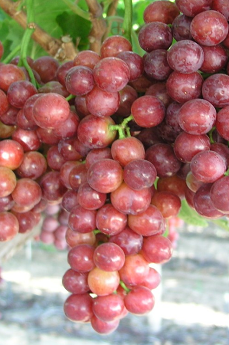 Rain over the Boland last Friday was welcomed by table grape growers in the Hex River, Berg River and Piketberg regions where harvesting hasn’t yet started, but in the Olifants River where the harvest kicked off late last week, it was a mixed blessing.
Rain over the Boland last Friday was welcomed by table grape growers in the Hex River, Berg River and Piketberg regions where harvesting hasn’t yet started, but in the Olifants River where the harvest kicked off late last week, it was a mixed blessing.
Rain in the area this time of the year is not usual and the rain coming during the harvest did cause some splitting on early cultivars.
Reports vary on the damage. Some growers say that damage on their farms is not major, ranging from less than 10% to about 20%, limited to early cultivars like Prime, Starlight and Flame.
Some Olifants River growers could decide to cut their blocks of Flame for raisins this season, not because of splitting, but because of good demand and a strong market. (Prices for sundried Flame and Thompson raisins are at record levels at the moment.)
In the Piketberg area there were also some minor occurrences of splitting on Flame, a variety that has been losing popularity with the industry.
The water supply in the Clanwilliam – Trawal area looks far better than last year, to the tremendous relief of grape growers.
It was a difficult flowering period with the heat wave and hot winds experienced by the Western Cape in October and growers can see that their vineyards still haven’t fully recovered from the years of drought.
As one viticulturalist succinctly puts it: “The drought is still inside the vines.”
Last year grape volumes were down by around 60% in the Olifants River region due to drought.
